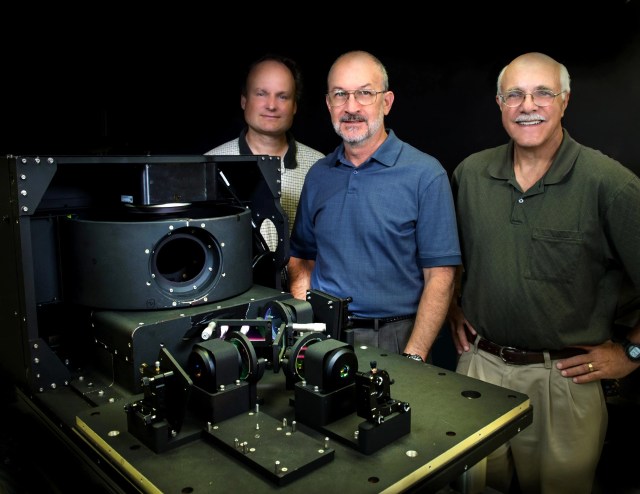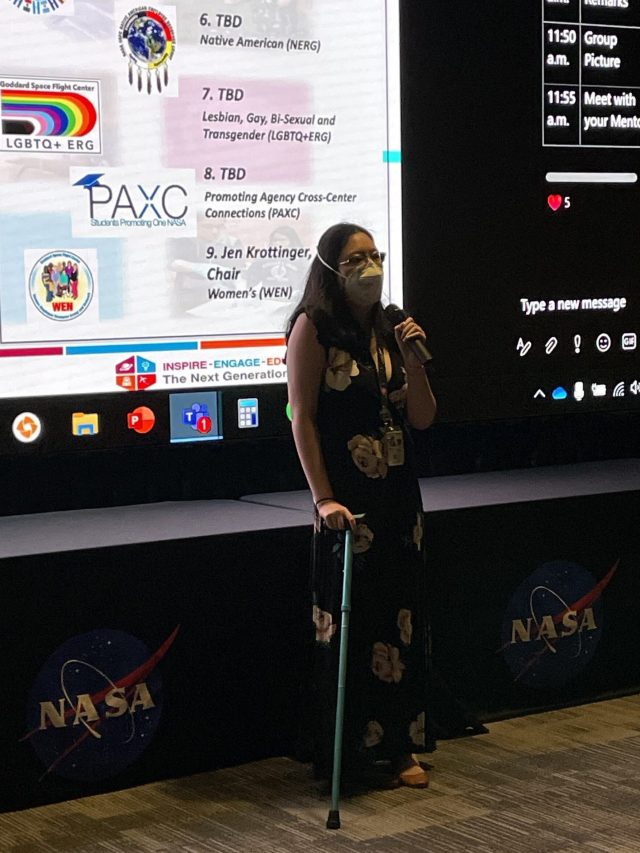Sexual Orientation Discrimination
Sexual Orientation in the NASA Workplace: Questions and Answers
What are the laws and policies that prohibit sexual orientation discrimination at NASA?
The 1978 Civil Service Reform Act states that Federal Agencies cannot “discriminate for or against any employee or applicant for employment on the basis of conduct which does not adversely affect the performance of the employee or applicant or the performance of others” [5 USC 2302(b)]. – The Presidential Executive Order 13087, issued in 1998, provides for “a uniform policy for the Federal government to prohibit discrimination based on sexual orientation.” – The 2010 NASA Policy Statement on Equal Employment Opportunity (EEO) – The 2010 NASA Procedural Requirements 2081.1A (Nondiscrimination in Federally Assisted and Conducted Programs) – The 2009 NASA Procedural Requirements 3713.3 (Anti-Harassment Procedural Requirements) – The 2009 JSC Policy Directive 3713.4N (EEO Policy, Designation of JSC Equal Opportunity Officer, and Redelegation of Authority to Act in Matters Pertaining to Discrimination Complaints Processing)
Why do I need to know about sexual orientation as it relates to the workplace at NASA?
Employees should expect to find a diversity of sexual orientations at NASA. In the past, it was common practice to fire or to refuse to hire suspected homosexuals in the Federal workplace. Employees have been physically threatened, verbally abused, and subjected to hostile working conditions. Laws and policies have changed, and all NASA employees need to be aware of their responsibility to prevent this form of discrimination and to ensure that lesbian, gay, bisexual, and transgender (LGBT) individuals are an accepted and valued part of the diverse NASA workforce.
Why do some people need to talk about their sexual orientation at work?
Sharing aspects of one’s personal life with coworkers is a normal part of everyone’s workday. Conversations about spouses, friends and family help form bonds of mutual respect and trust that support a productive workplace. Unfortunately, many LGBT employees do not discuss their personal life at work for fear that they will be rejected, harassed or threatened by other employees, thereby damaging their opportunities for advancement and promotion. Therefore, to enhance the productivity of ALL employees, it is just as important for LGBT individuals to be comfortable to speak about personal issues and matters as do other co-workers.
What if my religion says that homosexuality is morally wrong?
The NASA workforce includes a diversity of religious views, and discrimination on the basis of religion is prohibited in the Federal workplace. This means that no one can or should ask an employee to change his or her religious beliefs on homosexuality. Conversely, this also means that religious objections to homosexuality cannot be imposed on other coworkers or be used to obstruct nondiscrimination laws, NASA policies, and diversity activities.
What should I do if I believe I have been discriminated against because of my sexual orientation?
There are five avenues of redress available to a Federal employee who wishes to resolve a conflict or file a complaint of discrimination based on sexual orientation: (1) Alternative Dispute Resolution; (2) Agency discrimination complaint procedure; (3) Agency or Union grievance procedure; (4) Office of Special Counsel; and (5) Appeals to the Merit Systems Protection Board (for allegations involving personnel actions that are otherwise appealable to the Board). The employee who wishes to pursue conflict resolution or file a discrimination complaint using one of the above options should contact his or her Center’s Office of Equal Opportunity & Diversity (OEOD) for specific information.
What can I do to make NASA a better workplace for LGBT employees?
LGBT coworkers should be welcomed and valued members of your work unit. Acts of harassment or threats against LGBT employees should be reported immediately to your manager. Employees should refrain from LGBT jokes and negative comments. An individual’s sexual orientation should not be a factor in hiring, promotion, evaluation, and work assignment decisions. Finally, the Agency needs the thoughtful attention of every member of the NASA family in order to create a work environment where LGBT employees are safe, respected, and able to share in the full responsibilities and benefits of employment.
Where can I go if I have further questions about sexual orientation issues at NASA?
– The Office of Equal Opportunity and Diversity’s web page: https://www.nasa.gov/odeo/johnson
– You can also contact OEOD for further information at: (281) 483-0607
Does NASA offer domestic partner benefits?
LGBT employees of NASA can share some Federal employee benefits with their domestic partners. For example, domestic partners can be designated as beneficiaries of an employee’s Thrift Savings Plan and life insurance policies if the employee files the appropriate beneficiary forms. The domestic partner of an eligible NASA employee is eligible to elect NEBA insurance coverage provided they have not waived the opportunity to enroll in the previous 12 months. In addition, the child of a domestic partner is eligible to elect NEBA. Accordingly, effective July 1, 2010, same-sex domestic partners of eligible federal employees and annuitants can apply for coverage under FLTCIP as qualified relatives.
June is Lesbian, Gay, Bisexual and Transgender (LGBT) Pride Month!
Please note that in 2009 President Barack Obama designated June as LGBT Pride Month. This year the Office of Equal Opportunity & Diversity (OEOD) would like to recognize LGBT Pride Month. Starting this week our office will be displaying LGBT posters around the Center on easel boards. It is the hope of OEOD that the JSC community will work together to promote equal rights for all individuals.
Extension of Benefits to Same-Sex Domestic Partners of Federal Employees
Absence and Leave; Definitions of Family Member, Immediate Relative, and Related Terms






























